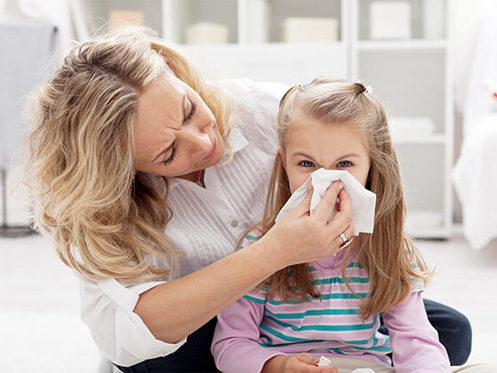That nice person did not mean to sneeze in your direction and send 100,000 germs into the air traveling 100 MPH for 200 feet! That sneeze was just an automatic reaction that is part of their natural immune process that protects them by clearing their nose and throat.
Sneezes help keep us safe as they rid our bodies of viruses and bacteria. This natural process occurs when a foreign item like pollen or dust enters our nose and sends a message to our brain. Signals are then sent to close our throats as our chest muscles tend to contract. As we begin to sneeze our throats quickly relax. The result is air, saliva, and mucous are forced out of our mouth and nose.
Sneezes have many different sounds. An American sneeze of course sounds more like “Ah-choo”. A German sneeze is “Hatsehi”. A Portuguese sneeze is “Achim”. A Hindi sneeze is “Achhee”. A Polish sneeze is “A-psik”. Recognizing the sound of future sneezes by others may have a new meaning!
Regardless of the speed, several germs, or the sound of a sneeze, the causes of a sneeze are similar. This is the time of year we hear a substantial increase in sneezes. Many think they are getting a cold, but the rest of the symptoms are not there yet. It’s that time of year when pollens increase and so do allergy problems.
If you feel your allergies to pollens continue to get worse each year, you are 100% right. That’s because pollen levels substantially increase each year as the environmental quality of our planet declines. An example is carbon dioxide levels have skyrocketed by 40% or more over the last 50 years.
Plant growth increases with higher carbon dioxide levels and so do the pollen levels. Higher pollen levels are helping produce a larger quantity of pollen that is considerably more potent too. All this contributes to feeling worse each year. Global warming is making the ragweed season even longer!
Data are abundant and readily available that provide a blueprint for why we need to be concerned. The research is well worth taking a moment to understand because our health depends on this knowledge.
Indoor air quality is important because we spend approximately 90% of our time indoors. Air quality can now be measured through a device called Air Advice.
Air Advice measures important things like dust or pollens in your home or office. It can also measure chemical levels, carbon dioxide, carbon monoxide, temperatures, and relative humidity. John Henry's Plumbing, Heating, Air, and Electrical has Air Advice instruments available to collect the data in about ½ hour during a regular service call.
Knowing things like the foreign particles in your air is very important. For instance, levels above 35ug/m3 can harm normally healthy adults by causing emphysema and diminished lung capacity. Children, the elderly, and pregnant women are more susceptible.
Several improvements can be done to reduce foreign particles in a home or office. The ductwork should be inspected and cleaned. UV lights may need to be installed in the HVAC system to reduce mold. A quality air filtration that removes 95% or more of the impurities needs to be installed. Trane and Lennox have great air filtration systems available.
If you have allergies to pollens, dust, and things of that nature, an important thing to do is close your windows! That “fresh air” is killing you. A quality air filtration system will scrub impurities in the air if the furnace fan is left in the run position.
Fresh air is still necessary to reduce the harmful effects of volatile organic compounds (VOCs), which are the off-gassing of chemicals from things like carpets. That fresh outdoor air should only be allowed to enter through Energy Recovery Ventilator (ERVs) systems or a Heat Recovery Ventilator (HRV) system so it can be filtered.
A sneeze may sound normal to some, but in reality, it’s a warning sign or an incredibly loud cry for help that’s often ignored. Some may decide to just increase allergy medications, but it’s important to consider the potential damage those medications can do to our bodies. At what point are we over-medicated? At what point do we say enough is enough?
There never has been a better time than now to take a stronger stand on reducing the damage to your body from pollens. Sadly enough we have reached the time it’s the environment vs. us. Let’s continue to stack the deck in our favor!

